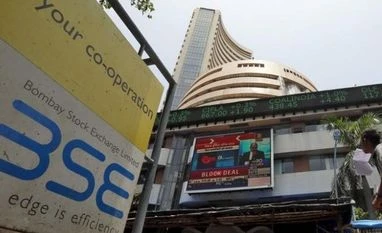Cash crunch shadow on Sensex earnings
The 2008 global financial crisis changed corporate India's earnings trajectory. Demonetisation has the potential to inflict similar damage
)
Demonetisation could push India Inc’s earnings trajectory downwards in a repeat of the fallout of the 2008 global financial crisis, some experts said.
After the Lehman crisis, there was a sudden drop in the underlying earnings of the Sensex companies and the earnings trajectory never fully recovered when normalcy returned in the second half of 2009. Corporate earnings are likely to drop sharply during the next two quarters with some effect spilling over to the next financial year, according to brokerage firms. Ambit Capital has cut the Sensex underlying earnings per share (EPS) for 2016-17 by seven per cent to Rs 1,396 from a previous estimate of Rs 1,496.
The firm has also cut the earnings estimates for 2017-18 to Rs 1,530 per share from an earlier estimates of Rs 1,782. In comparison, the Sensex’s current underlying EPS is Rs 1,281. “In light of our expectation of weak growth over the next two quarters, it is highly unlikely that 2016-17 Sensex earnings per share would be able to reach the kind of levels being estimated by our analysts currently. We now build in a flat earnings growth for the Sensex during 2016-17 over the previous year,” said Ambit Capital in its recent report on demonetisation. Dhananjay Sinha, head, institutional equity, Emkay Global Financial Services, expects a double blow to corporate earnings in the next two quarters.
“Corporate earnings will be affected by a combination of demonetisation and steadily rising commodity prices. While the former will bring down revenue growth, the latter will result in higher operating costs and lower operating margins. The end result could be flat profit growth during the next two quarters,” he said.
The combined net profit of around 2,500 companies that have declared their July-September results was up 3.5 per cent, year on year, while net sales was up 1.3 per cent.
Also Read
The demand destruction unleashed by demonetisation and the resulting cash crunch could result in a fall in revenue during the third quarter.
This would be a repeat of what had happened to corporate India in the aftermath of the 2008 global financial crisis. A freeze on credit flow after the crisis led to a sudden drop in demand (net sales) and profit. The underlying earnings per share of Sensex companies had fallen of the cliff beginning July 2008 and finally bottomed out in March 2009. In all, the index EPS was down 15 per cent during the period.
Sensex earnings per share would have been higher by around 75 per cent if they had maintained their pre-crisis trajectory.
Others, however, said it would be business as usual once liquidity in the system normalised. “Corporate earnings and economic growth are likely to normalise in 2017-18. There will be some lingering pain for the real estate sector and related industries but their overall weight is not big enough to derail India’s growth story,” said G Chokkalingam, founder and CEO, Equinomics Research & Advisory.
READ OUR FULL COVERAGE ON THE MODI GOVT'S DEMONETISATION MOVE
READ OUR FULL COVERAGE ON THE MODI GOVT'S DEMONETISATION MOVE
More From This Section
Don't miss the most important news and views of the day. Get them on our Telegram channel
First Published: Nov 22 2016 | 2:51 AM IST
